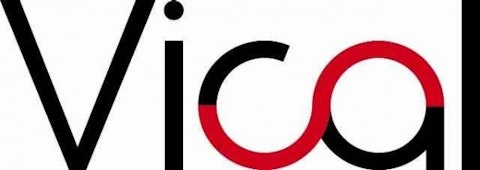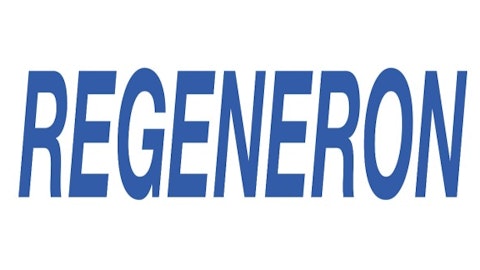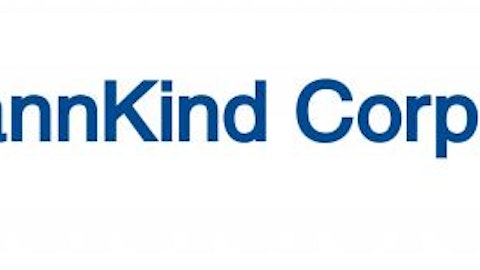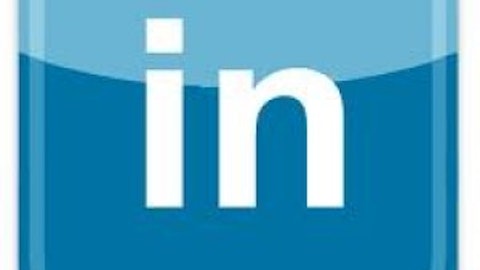It’s make-or-break time in 2013. That’s the situation for several biotech companies with critical phase 3 trials under way. Good results from a late-stage clinical study can help an up-and-coming biotech hit the big time — and help shareholders hit the jackpot.
On the other hand, less-than-stellar results can decimate a company’s hopes and its stock. Celsion Corporation (NASDAQ:CLSN) experienced this agony of defeat recently when its ThermoDox failed to improve progression-free survival rates in liver cancer patients. Shares plummeted more than 80% on the news.

1. Could Allovectin be the next blockbuster cancer drug?
Small biotech Vical Incorporated (NASDAQ:VICL) thinks that it might be on to something big with Allovectin. The company expects to announce results from a phase 3 study of the drug in treating metastatic melanoma in the middle of this year. Vical hopes that success with this trial will lead to application of Allovectin to other indications, including breast cancer, prostate cancer, and head and neck cancer.
Vical is quick to point out several advantages that Allovectin has over the currently available leading metastatic melanoma drug, Bristol Myers Squibb Co. (NYSE:BMY) ‘s Yervoy. Allovectin can be given in an outpatient setting with little post-administration monitoring; Yervoy must be administered via infusion with monitoring following the treatment. Vical also notes that no patients in its phase 2 study of Allovectin experienced severe adverse events that are sometimes encountered by patients who take Yervoy.
Melanoma could present a market potential of more than $500 million annually for Allovectin, according to Vical’s estimates. That figure could be much higher with additional indications for the drug. Of course, Allovectin first needs to prove itself in the current late-stage study. We’ll find out in a few months if Vical is truly on to something big.
2. Will this pancreatic cancer drug succeed?
Merrimack Pharmaceuticals Inc (NASDAQ:MACK) probably faces one of the toughest challenges of any biotech. The company expects to conclude a phase 3 trial of experimental drug MM-398 as a second-line treatment for pancreatic cancer later this year.
Pancreatic cancer has few available treatments and is usually fatal. Amgen, Inc. (NASDAQ:AMGN) experienced first-hand how difficult it can be to succeed with a pancreatic cancer drug last August. The company halted its phase 3 and phase 2 studies of ganitumab after analysis found that improvement of survival rates was unlikely.
Merrimack hopes that MM-398 will succeed where others have failed by delivering existing chemotherapy irinotecan using nanoliposomal encapsulation. These nanolipisomes target specific cancer cells for more optimal delivery of irinotecan. MM-398 is currently Merrimack’s only drug in a late-stage clinical study. The company has no product on the market yet, so results from the phase 3 trial of MM-398 will be huge for this biotech.
3. Will the third time be the charm for Afrezza?
While there are plenty of other biotech firms that will find out results from phase 3 studies in 2013, I would be remiss if I didn’t include MannKind Corporation (NASDAQ:MNKD) on our list. The company has been down the road to FDA approval before with its inhalable insulin Afrezza — twice.
MannKind’s first attempt to gain approval for Afrezza met with rejection in early 2010. The FDA needed more information, including how the company’s newer MedTone inhaler compared to an earlier version used in clinical trials. MannKind supplied more information, but the FDA failed to approve Afrezza again in 2011.
This time around, MannKind seems to have all of its ducks lined up in a row. The company has two phase 3 trials under way and has worked closely with the FDA to make sure any questions are answered. MannKind expects to announce the results in August. Positive findings would probably lead to a partnership deal for commercializing Afrezza, long-awaited FDA approval — and a big boost for MannKind’s shareholders.
Make or break?
Which of these three events is most likely to make money for investors? I would say that MannKind’s odds look the best. The FDA has seemed satisfied in the past with Afrezza’s efficacy and safety profile. The big question mark has been with the inhaler device. I expect MannKind to replace that question mark with an exclamation point.
Vical and Merrimack have more difficult roads ahead. The biotech landscape is littered with once-promising cancer drugs that failed to attain success in phase 3. However, if either of these companies announce positive late-stage results this year, shares will likely skyrocket even more than MannKind’s will (assuming it also has good news).
I think that all three of the stocks have the potential to double within the next year or so. Biotech investors could make a lot of money — if these events break their way.
The article 3 Events Biotech Investors Need to Watch in 2013 originally appeared on Fool.com and is written by Keith Speights.
Fool contributor Keith Speights has no position in any stocks mentioned. The Motley Fool has no position in any of the stocks mentioned.
Copyright © 1995 – 2013 The Motley Fool, LLC. All rights reserved. The Motley Fool has a disclosure policy.



